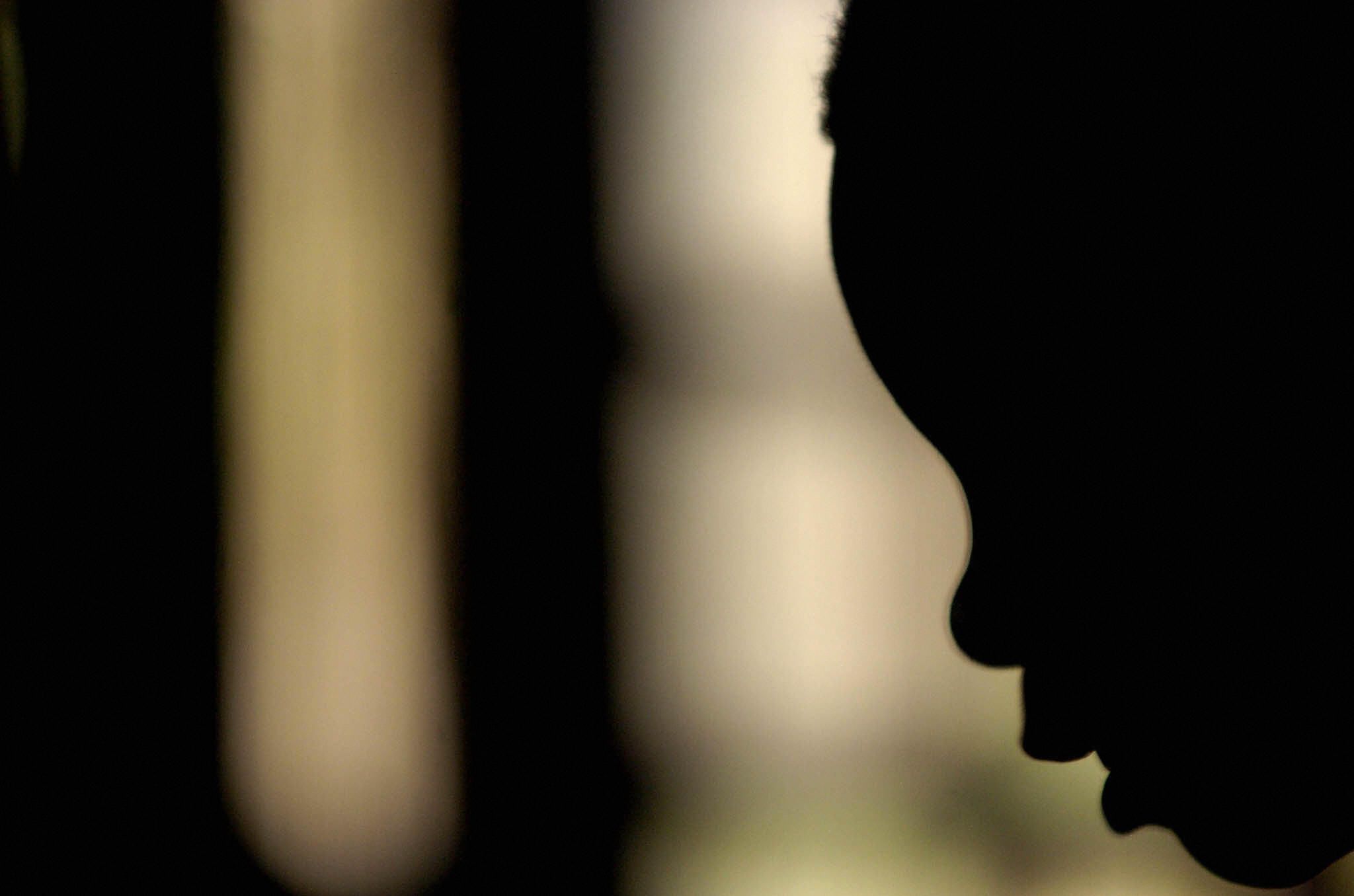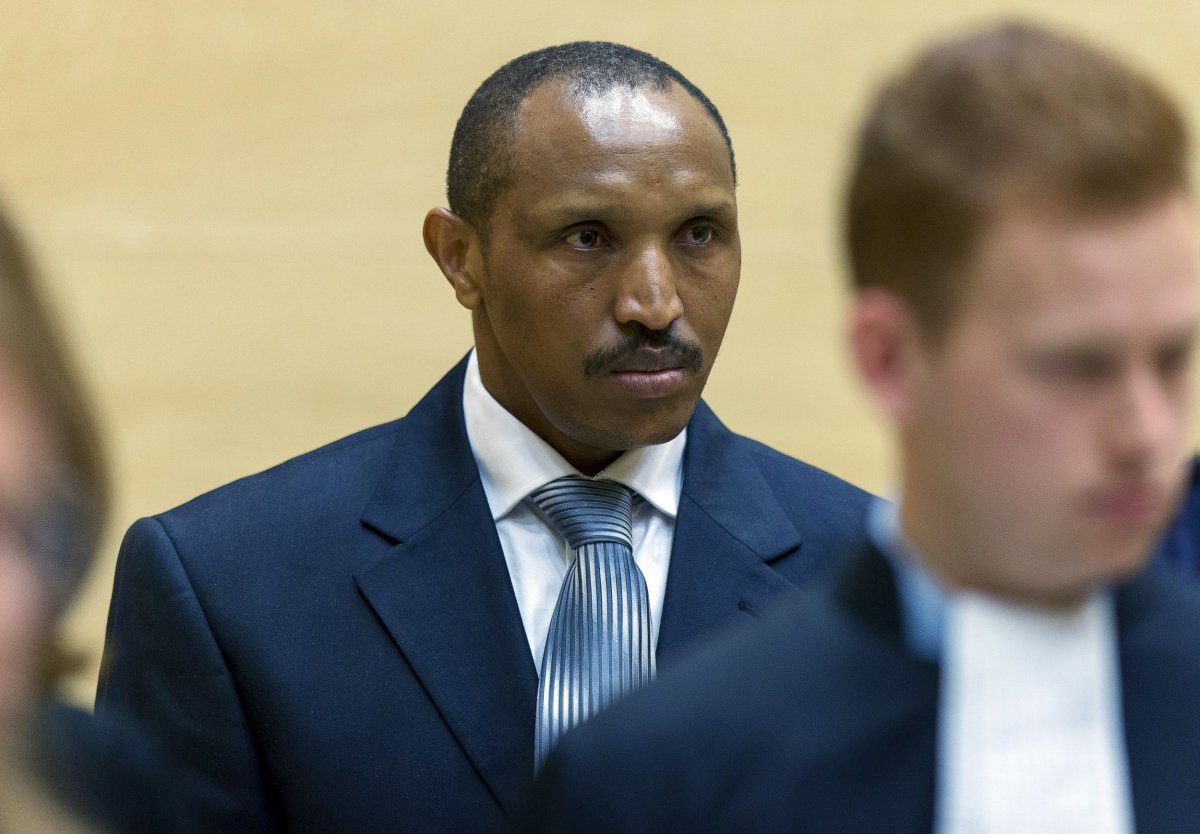
Almost two years after the trial opened, Congolese military commander Bosco Ntaganda will take the stand on Wednesday at the International Criminal Court (ICC), charged with 13 war crimes and five crimes against humanity.
Ntaganda's charges —including the murder and rape of civilians and "the recruitment, use, rape and sexual slavery of children"—date back to 2002 and 2003, while he was deputy chief of the general staff for Force Patriotiques pour la Libération du Congo (FPLC), a rebel group in eastern Congo.
Described by ICC chief prosecutor Fatou Bensouda as a "notorious and powerful military leader," the 43-year-old was a central figure in the FPLC, one of Congo's many armed groups, and is accused of recruiting hundreds of children under the age of 15 into combat in the country's mineral-rich east.
"They recruited and used hundreds of children…to wage their bloody war," Bensouda said at The Hague. "They forced these children to kill and treated them cruelly…also raped and sexually enslaved the girls."
The ICC's pursuit of Ntaganda, who evaded authorities for nearly seven years before he surrendered in 2013, is a welcome move for an institution criticized over the years for inaction. In 2014, Ntaganda's ally Thomas Lubanga Dyilo was sentenced to 14 years in prison for the recruitment and use of children under 15 by the ICC. It was the court's first ever conviction.
Prior to that, in 2007, the international community had already sent a clear message that those who use children in war would have to face justice. The Special Court for Sierra Leone convicted Alex Tamba Brima, Ibrahim Bazzy Kamara, Santigie Borbor Kanu and Allieu Kondewa of the recruitment and use of children among other crimes under international law during the West African country's 11-year armed conflict that ended in 2002.
And later in 2012, the former Liberian president, Charles Taylor, was found guilty of a range of crimes, including recruiting children under the age of 15 and using them to participate actively in hostilities in the same conflict in Sierra Leone.
Pinpointing an exact number of child soldiers globally is impossible given the disparate nature of many armed groups. But Child Soldiers International estimates the numbers remains in the tens—if not hundreds—of thousands.
Read more: Why the U.S. and Uganda are dropping the hunt for warlord Joseph Kony
Congo has been a major breeding ground for underage combatants over the years. What is unique about the Ntaganda trial is its focus on the exploitation and serial abuse of girls in armed conflict, an area largely overlooked by international media. Strikingly, it is estimated that up to 40 percent of all child soldiers in the country are girls.
Bensouda's remarks at the trial opening reveal the horrific extent of abuse suffered by many at the hands of the FPLC. She argues that girls in the group were "reduced to objects which soldiers and commanders could pass around and use for sex whenever they pleased."
Her comments strike an alarmingly similar tone to those of many girls we interviewed in the country in 2016. "I was often drugged,"17-year-old Jeanette*, who was formerly part of a Congolese armed group, told us. "I would wake up and find myself naked. They gave us drugs so that we would not get tired of all of them using us."

The account forms part of Child Soldiers International's extensive new research detailing the experiences of 150 former girl soldiers in eastern Congo to be released on June 19, the International Day for Elimination of Sexual Violence in Conflict. A majority of girls we interviewed—some who had joined armed groups and self-defense militias "voluntarily," others who were forcibly recruited—said they had suffered sexual abuse in captivity. Many had been forced to be wives for soldiers. "We were treated like toys," 15-year-old Sara explained. "Lucky were those who only had one man."
Girls' roles in armed groups take on multiple forms. Some will indeed be involved in direct fighting but many are exploited as cooks, porters, spies and forced to carry out hard labor. For Anourite, who was only eight years old when she was abducted from her school by Joseph Kony's Lord's Resistance Army — a Ugandan militant group active in Congo and Central African Republic—life in the group meant caring for babies (many born to other female soldiers) and carrying the armed group's belongings, because she was "too small to serve men."
Held captive for four years by the infamous group, she told us that physical and psychological suffering was common: "We were beaten, even though we were only children. At first I said: 'I want to see my family,' and they beat me even more. So I stopped crying. I had my first period in the bush. I managed using leaves."
The sexual abuse suffered by many of the girls we interviewed also makes them the focus of ridicule and rejection when they return home. Stigmatization of returning girl soldiers, heightened because of their sexual relations with soldiers, is a major problem in the region and stifles their reintegration back into communities. "Every girl from the bush, the community points to her and says: 'Watch out: HIV,'" one 16-year-old girl explained.
Reintegrating these girls brings many challenges. This is why Child Soldiers International works with our national partners and communities to help them better understand the suffering these girls have gone through and support them accordingly when they go home.
The trial of Bosco Ntaganda is clearly a positive step in bringing to justice those individuals and armed groups who continue to recruit children for war. But the international community needs to ensure that the girl soldiers in Congo and elsewhere in the world are not forgotten on their return home. And sadly, there are still countless other perpetrators recruiting and using children that remain free and operate outside of the law.
We hope that the events at The Hague will send another strong message that these war crimes will no longer be tolerated and provide a small shred of justice to Ntaganda's many victims, offering some hope to the thousands of other children who suffer, and have suffered at the hands of armed groups and forces.
Sandra Olsson is program manager at Child Soldiers International , an international human rights organization that seeks to end the military recruitment of all children.
*Names of individuals in this article have been changed to protect their identities.
Uncommon Knowledge
Newsweek is committed to challenging conventional wisdom and finding connections in the search for common ground.
Newsweek is committed to challenging conventional wisdom and finding connections in the search for common ground.
About the writer
To read how Newsweek uses AI as a newsroom tool, Click here.








